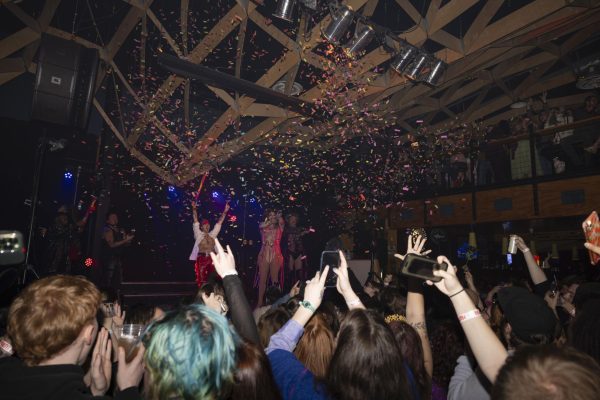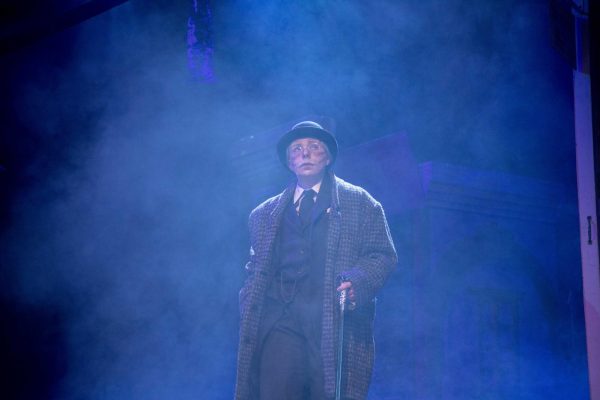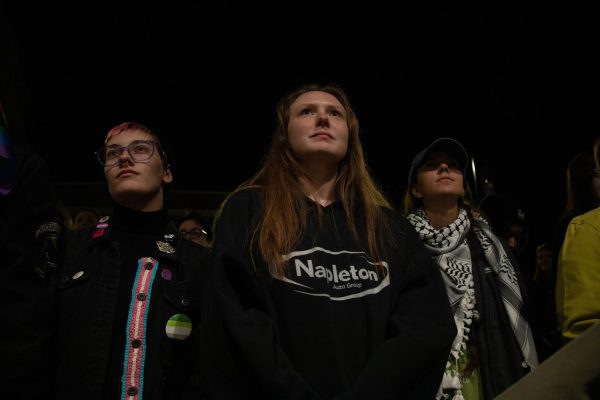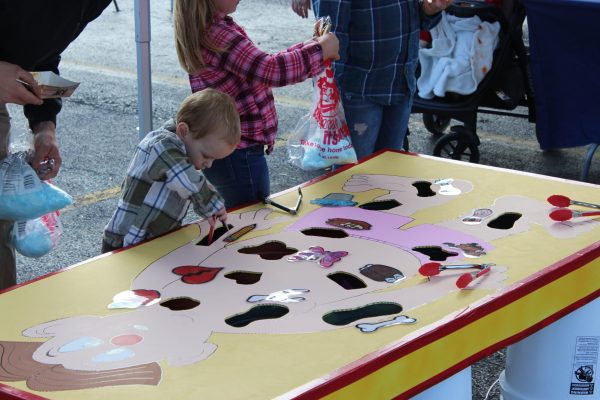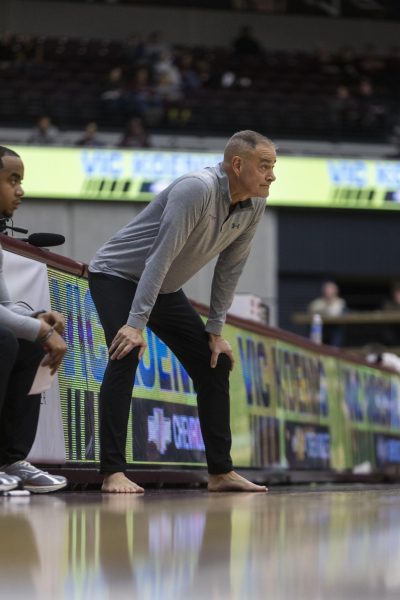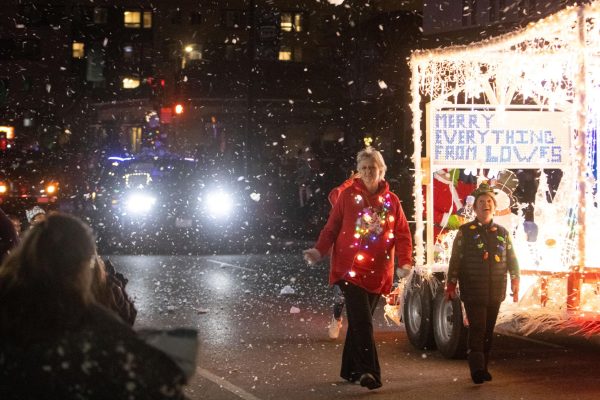“Euphoria’s” second season quickly establishes itself as one the generation’s most engrossing pieces of pop culture
In the summer of 2019, “Euphoria’s” first season debuted and quickly became a highly acclaimed addition to the HBO pantheon of consistently stellar dramatic TV series. It garnered a lot of attention at the time, due to its boundary pushing narrative and content. It served as one of the first mature performances of former Disney star Zendaya. But the success it saw in its first season seems microscopic when compared to the unprecedented explosion in popularity it would see between the first and second season. Two and a half years, two “special episodes,” and one pandemic later, in Jan. 2022, we finally got the follow-up to the massive cliffhanger that closed season one. The season two premiere seemed to give everything the fans had been waiting for and more and served as an immensely satisfying return to the moody neon drenched world of Director Sam Levinson’s “Euphoria.” The shocking final moments of the season premiere seemed to play a major part in the still escalating popularity of the show, largely in thanks to the show’s fanbase on Twitter. In the two months that “Euphoria” has been back, it is without fail #1 on the trending page of Twitter every Sunday night, even going as far as out-trending the Super Bowl and more recently the ongoing conflict between Russia and Ukraine. Twitter has now officially stated that it’s the decade’s most tweeted about show, with over 30 million tweets since the start of season two. This kind of fervent discourse each week has also seemingly reestablished the week-to-week episodic format as the best way to keep a show popular and relevant, in an era where most platforms will simply drop entire seasons at once. More than any show in recent memory, “Euphoria” begged to be watched right at 8 p.m CST, every Sunday night, or one would risk being left out completely.
From the very start of this season, it was clear this was a step up in almost every way from the first season. One of the most striking differences that can be noted is that this season was shot entirely on film, which is becoming increasingly rare for any modern production, especially television. The first season was known for its slick and confident camera work, as well as its more reality bending, fantastical, music video-esque sequences. The second season doubles down on this and shows that Levinson has sharpened his technical skills past his already impressive work in 2019. Between seasons, Levinson also directed a feature film, “Malcom and Marie,” in 2021 for Netflix. While the film’s critical response was underwhelming, it still marked growth for him as a director, working on a large production. It also serves as the bridge in his work from 2019 to 2022. “Euphoria” also went bigger in terms of its narrative choices, which seemed like an impossible task considering how high stakes the first season was. While season one still is a highly emotional and dramatic look into the modern high school experience, this season starts to go toe to toe with the likes of shows such as “Game of Thrones” or “Breaking Bad,” in terms of the scale of its intensity. Each episode, I was actively anxious watching events unfold and episodes like “Stand Still Like the Hummingbird” (season two episode five) left me feeling like I had just finished running a marathon. This season truly felt like anything could happen to any character at any moment and made every episode exhilarating, albeit extremely stressful. The episode that got most people talking about award worthy performances, was episode five “Stand Still Like the Hummingbird”. Zendaya gives what is likely her best performance to date and will remove doubts from any naysayers still seeing her as the Disney star she used to be. The whirlwind of emotions she pulls off and the number of times the audience’s opinion is swayed within the episode’s 54-minute runtime rivals even seasoned actors who’ve been in the industry for triple the time she has.
Advertisement
The events of the season are so intensely dramatic that, while undeniably exciting, at times it can feel a bit unbelievable. A common criticism that the show receives is that the lives of the character’s are unbelievable when considering that they all are still in high school. This season especially conjures those feelings. While every episode had me all in, once I took a step back, it could feel like a bit too much. Something that put this into perspective is when my 15-year-old younger brother, a freshman in high school, told me he had been watching the show. The idea of this shocked me because even though he’s in the same age bracket as these characters, it feels far too mature for him to be watching. I think the show does a good job of showing the consequences to bad behaviors, most prominently drug use and the effects of generational trauma. But on the other hand, I feel that it tends to romanticize toxic relationships. While being a prominent voice for the current generation, it can create a false, highly dramatized idea of what high school is, or rather, should be like. This creates the question on where the line should be drawn for something that serves as a commentary on adolescence that teens will no doubt latch onto, but still needing to function as an entertaining piece of television. I don’t feel that this is necessarily the responsibility of the showrunners, or anyone involved, but rather something to think about before letting someone under 18 watch the show. High school is a setting that filmmakers often latch onto because of how emotionally raw it is. But when someone like Levinson, who is 37 years old, attempts to create an image of the modern teen, there is some level of responsibility that needs to be taken to handle these subjects carefully. I think the show generally does a good job in accurately representing the current youth, but it can be a dangerous line to walk.
So, with all that context aside, I truly did fall in love with this show over the course of these last eight episodes. The opening of the premiere, “Trying to Get to Heaven Before They Close the Door” (season two episode one) starts with the backstory for the character’s Ashtray and Fezco. “Euphoria” assures audiences that it’s making good on what made the first season so polarizing. Before we even hit the five-minute mark, we see full male and female nudity, cursing, violence, and drugs, all to the tune of Billy Swan’s “Don’t Be Cruel.” The show quickly differentiates itself from the first season, with a new color palette and visual flair. Throughout the season we see the return to many of the fantasy sequences that filled the first season but are even more ambitious here. While I think these dreamlike moments are beautiful and highly unique, they often felt confusing in what was really happening and what wasn’t. I think this was likely the intention, but I often found myself being pulled out trying to decipher reality, especially in “The Theater and Its Double” (season two episode seven).
The main heart of season two relies on the fact that we already got to know all these characters on a basic level and most of them are in some vulnerable and raw place right from the start. Characters like Lexi played by Maude Apatow, Cal played by Eric Dane, and Fezco played by Angus Cloud, who took more of a backseat last season or felt a bit underdeveloped, get their chance to shine this season. We also see McKay, played from season one disappear almost completely, but are introduced to Elliot, played by Domminic Fike, who is a newly introduced character. Another big change we see is that the show shifts away from Rue and gives a lot more screen time to other characters. A point of contention for a lot of people is that pretty much everybody kind of sucks this season. Not in the way of bad writing or acting, but that they all do some genuinely awful things to each other, and the show resists having clear good or bad characters. This personally is one of my favorite parts about season two, because it feels more genuine and real. It doesn’t shy away from showing characters we have come to love, like Rue, at their darkest moments. Every actor had a chance to truly shine and give more than a few stellar performances every episode. Apatow as Lexi and Dane as Cal especially impressed me, and I can’t wait to see where their characters will go after this season. One of my complaints with the structure of the season was that it had so many upsetting moments every episode and felt like they needed to keep dropping melodramatic bombs in order to keep up the show’s momentum. I was always fully engrossed, but I found it to be overwhelming at times. But even though the show is very abrasive and intense, it’s chock full of quiet, sweet, sad, and contemplative moments that helped ground it when things start going overboard. Even some of the most critically acclaimed shows of recent memory struggle to pull this off. The season is relatively short, at eight one-hour long episodes, which I think is the perfect length for the show. It never overstayed its welcome.
Advertisement*
“Euphoria” season two came and went remarkably fast, considering how long the wait between seasons was, but it valued quality over quantity in a way. Hopefully we don’t have to wait quite as long for the next season, because myself and many others can’t wait to see what Sam Levinson has up his sleeve next. Although it gets distracting at times, there were countless moments that blew me away and each week I found myself stuck in my seat once the credits hit, staring in awe. I think “Euphoria” is truly a special moment in pop culture and one of the few takes on coming of age that is truly of my own generation in a way that doesn’t feel disingenuous.
Staff Reporter Zaden Dennis can be reached at [email protected]
Advertisement




